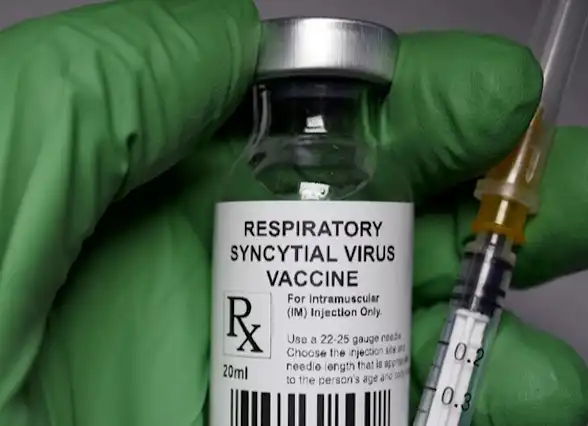Is the Respiratory Syncytial Virus (RSV) Vaccination Important?
Respiratory syncytial virus (RSV) can be dangerous for older adults and a single dose of RSV vaccine can help protect them from getting very sick.
Get insurance benefits, legal documents, and medical records in one place

Helpful Highlights
Respiratory syncytial virus (RSV) is highly contagious and can cause older adults to get very sick. It can also worsen serious conditions such as COPD, and heart failure.
Between 60,000 - 160,000 older adults in the U.S. are hospitalized and 6,000 - 10,000 die due to RSV infection.
While there is no specific treatment for RSV infections, there are important preventive measures, which include vaccination for those aged 60 and older.
RSV vaccination
The CDC recommends respiratory syncytial virus (RSV) vaccination for those aged 60 and older. In June 2023, GSK Arexvy and Pfizer Abrysvo vaccines were approved by the FDA for use in older adults. The best time to get the vaccination is late summer to early fall before RSV usually starts to spread in the community.
RSV vaccination can help protect your loved one from getting very sick with RSV. One dose protects against RSV in adults aged 60 and older for at least two winter seasons when RSV normally circulates. They are well over 80% effective in preventing lung infections in the first year and are still well over 50% effective in the second year.
RSV vaccination side effects
Side effects such as pain, redness, and swelling at the injection site, fatigue, fever, headache, nausea, diarrhea, and muscle or joint pain are possible after RSV vaccination. These side effects are usually mild and do not last long.
What it is
RSV is a common respiratory virus that can cause mild to severe respiratory illness, particularly in older adults (and young children). RSV typically spreads through respiratory droplets when an infected person coughs or sneezes, or by touching surfaces contaminated with the virus and then touching the face. The virus can survive on surfaces for several hours, making it easy to spread in communal living settings and healthcare facilities.
RSV can cause significant respiratory illness in older adults, especially those aged 65 years and older or those with underlying health conditions such as heart or lung disease. RSV infections in older adults may present as severe pneumonia, exacerbation of chronic obstructive pulmonary disease (COPD), or exacerbation of heart failure.
Between 60,000 - 160,000 older adults in the U.S. are hospitalized and 6,000 - 10,000 die due to RSV infection. Adults at highest risk for severe RSV infection have:
chronic heart or lung disease
weakened immune systems
certain other underlying medical conditions (diabetes, kidney or liver disorders)
frailty or advanced age (75+)
live in nursing homes or other long-term care facilities
Important preventive measures
There is no specific treatment for RSV infections, and most cases resolve on their own with supportive care such as rest, hydration, and over-the-counter medications to relieve symptoms. In severe cases, hospitalization and supportive treatments such as supplemental oxygen or mechanical ventilation may be necessary, particularly in infants, older adults, and immunocompromised individuals.
In addition to vaccination, preventive measures to reduce the spread of RSV among older adults include:
frequent handwashing
avoiding touching the face with unwashed hands
avoiding close contact with sick individuals, especially grandchildren who attend daycare
covering coughs and sneezes
regularly disinfecting frequently touched surfaces
staying home when sick
Talk to your loved one's healthcare provider about whether the RSV vaccine is appropriate for them, especially if your loved one resides in a nursing home or spends a significant amount of time in healthcare facilities.
RESOURCES
American Medical Association (AMA)
CDC - RSV Vaccine for Adults 60 and Older
U.S. Food and Drug Administration (FDA)
Melgar, M., Britton, A., Roper, L.E., et al. (2023). Use of respiratory syncytial virus vaccines in older adults: Recommendations of the Advisory Committee on Immunization Practices — United States, 2023. MMWR, 72, 793–801. DOI
No content in this app, regardless of date, should ever be used as a substitute for direct medical advice from your doctor or other qualified clinician.
Get more support and guidance on insurance benefits, medical records and legal forms.
Helpful brings together your insurance benefits, legal documents, and medical records in one personalized place — so you always know what you have, and never have to search again.

Technology for Health Tasks. Mental Health for the Tough Stuff.
Helpful connects your medical records, insurance, and caregiving tasks automatically. And when you need more than logistics, a therapist is here to guide you.
In-Network and Covered
For Individuals, Couples and Families
HIPAA Compliant, Data Stays Private


Healthcare Tasks Simplified

From syncing records to spotting drug interactions, Helpful does the heavy lifting, turning complex health info into clear tasks and showing you benefits you can actually use, giving you clarity and control over your care.

In-Network Mental Health

Our licensed therapists are here to support you and your loved ones through stress, burnout, and life’s hardest moments, with an inclusive, compassionate approach that works with most insurance plans.

Create Legal Documents

Plan ahead by creating will, trusts, advance directives and more, that ensure your wishes are honored in the event you can’t speak for yourself -with Helpful guiding you every step of the way.